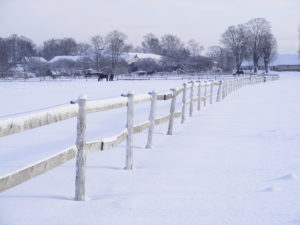
Your hearing health is at risk during the winter season. Follow these steps to protect yourself.
This winter, with temperatures dropping sometimes into the single digits, cold weather health and safety has been more important than ever. But as you may know, it is just as important to protect your ears while you are bundling up against the chill. Here are some things to consider about ear health during these cold winter months.
Temperature Changes
We undergo the most jarring temperature changes in the winter from alternately going inside and outside to the extreme cold. By simply covering your ears with earmuffs or even a hat or scarf, this dramatically reduces the risk of damage and even hearing loss from the cold and wind. Especially in highly windy conditions, soft earplugs are also recommended. Even hearing aids can be damaged by the cold, which can hurt the batteries. To keep them in good condition, avoid exposing them to the cold as much as possible. Also, bring a change of batteries when you have to go out. If your ears do become chilled, avoid using hot water or directly applying heat to them. Instead, warm them gently by massaging them with your hands or by keeping on your earmuffs indoors until they have recovered.
Moisture
Dry air is often a signature of winter weather. But moisture, in the form of condensation, can negatively impact your hearing or hearing aid health. Condensation occurs regularly in the winter because of the sudden temperature change of going from cold to hot. For example, a cold bathroom mirror fogs up because of the condensation from the steam of a hot shower. When moisture gathers in the ear canal, it can lead to discomfort and infections. Avoid using cotton swabs or any digging to clear out moisture as this could damage your ear. When you have the opportunity, uncover your ears to let the moisture evaporate. This allows your ear’s natural self-cleaning process to do its work. It is better to seek medical attention if you feel that you may have an ear infection. Likewise, for hearing aids do not forcefully heat or dry them, such as with a blow dryer. The best way to combat condensation is to allow them to air dry overnight.
Contact Bay Area Audiology Today!
If you are concerned about hearing loss or seeking hearing evaluations, tinnitus evaluations, or hearing aid assistance, our doctors are ready to help. We are passionate about helping all of our patients improve their quality of life through better hearing. We also believe that patient education is critical, so you won’t be led through endless sales pitches at our office. If you are interested in hearing how we can help you hear even better, contact us at (410) 838-4327 or online. For more hearing tips and articles, follow Bay Area Audiology on Facebook, Twitter, Google+, Pinterest, and LinkedIn.
